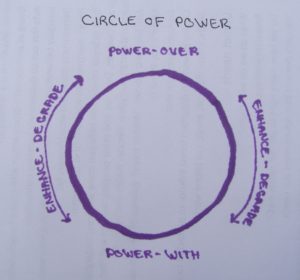by Jenny Rose | May 3, 2018 | Contribution, Emotional Intelligence
Years ago, during a conversation about men, a girlfriend of mine said, “You have to kiss a lot of frogs.” It was the first time I’d ever heard that observation, and I’ve never forgotten the way it made me smile. Now, it’s all over the Internet, but then we weren’t numbed by such a constant bombardment of memes and phrases.
One does have to kiss a lot of frogs in life. Roommates from hell, jobs we hate, the nether regions of those more powerful than we are, all require a certain amount of kissing. Then there are sticky-faced children kisses; big-hearted sloppy dog kisses; and, my personal favorite, sandpaper cat kisses that remove the top layer of skin from one’s nose.

Photo by Andreas Fidler on Unsplash
The central preoccupation of kissing, of course, is the “romantic” kiss. We quickly learn that some kisses are more romantic than others. A lot of our personal kissing history is hurriedly filed away under the label “What Was I Thinking?” and we try to forget about it.
When I really consider it, I realize we spend much more time kissing frogs than anything else. Someone should write a manual. (Poor little frogs. I’m very fond of them. I wonder if they have metaphors about kissing princes in hopes they turn into frogs. It would only be fair.)
Leaving an old, familiar place and coming to a new one reminds me how many frogs are out there, waiting to be kissed, especially in this season when the night shrills with the insistent songs of a variety of species from tiny peepers the size of a thumbnail to enormous bullfrogs. I’ve kissed a lot of frogs trying to make new friends. I’ve kissed a lot of frogs trying to find someone to cut my hair, a massage therapist, a dentist, a doctor, and a health food store.

Photo by henry fournier on Unsplash
Kissing frogs takes time, and I get discouraged. I’ve never been comfortable socially. I hate trying to make a connection with strangers. I know intellectually that for every ten times I reach out to another, nine times it will be another dead end, but the tenth time something wonderful will happen. Persistence and patience do pay off.
I’ve spent my life with books. I was reading before Kindergarten (thank you, Richard Scarry, Mom and Dad). Our home was always filled with books. I have a library degree and I’ve worked in a public library and an elementary school library. In my old place, I did volunteer work for a used bookstore run by the local Friends of the Library.
I came to Maine with more than 30 boxes of books, and that was after a severe culling. My partner has at least as many books in his own library. This old farmhouse is positively groaning with our combined libraries, and we’re in desperate need of more shelving. I was disappointed to find a less robust library program than I was used to in the nearest town, and no bookstore of any kind. My first year here, I did hear of a used bookstore in a college town about 30 minutes away, and my partner and I agreed we’d go check it out.

Photo by Jazmin Quaynor on Unsplash
Three and a half years later, I finally made up my mind to stop shillyshallying around and go find that bookstore. I made a date with myself, pulled out maps, informed my partner I was going, dammit!, and we went.
Heaven. Bliss. Home. Shelves and boxes and unstable stacks of books on every surface. Hundreds of books. Thousands of books. Chairs and stepstools and round stools. Old encyclopedias. Children’s books. A huge table covered in a tornado of books.
I headed for the farthest back corner and started working my way forward through nonfiction hardback, plays, poetry, and then fiction.
A long time later, I went in search of the store owner, who was talking with my much more gregarious and extroverted partner in the casual fashion of men getting to know one another. Without preamble, I asked the owner if he had any use for a volunteer experienced in library and bookstore work. We were standing in a room I hadn’t explored yet that looked as though it had been the site of an explosion. Later, I found out a pipe had burst and flooded the place.
He thought this was a fine idea, and said I could start that minute. He also said he’d pay me in books (I made a valiant effort not to drool in front of him). I didn’t want to start that minute, so I declined, and I could tell he thought I didn’t mean it, not really. I said we’d talk. I went back to browsing, smiling to myself.
A couple hours, a heavy box and $145 later, we emerged, happy and grubby. I’d made a date to return, but the owner didn’t think I really would.
On Monday, as promised, I returned precisely on the dot of 12:15 p.m., the time he requested.
He’d hurriedly emptied several bookcases at the time of the flood, and disassembled shelves to get them out of the way. He’d been working to get the shelves back up and wanted me to load them. I asked if I could wipe down the shelves first. A raised eyebrow and surprised agreement. He found a bucket and a rag and I got to work while he searched among towering piles of heavy boxes for the books that belonged on the shelves. This was the general fiction mass market paperback section. He wanted me to weed out science fiction, fantasy, horror and mystery for other sections. He also wanted me to weed out duplicates, choosing the best copy for the shelf.

Photo by Syd Wachs on Unsplash
So began four glorious hours of squatting, bending, kneeling, sorting and alphabetizing. A bookstore invariably reflects the place it’s in. In Colorado, we had a Colorado section, naturally, featuring Colorado authors and artists. We also had a big Western section featuring Louis L’Amour and other Western writers. In Maine, there’s a Maine section and history and biography focused on the founding of the colonies, mills and seafaring. Also, a lot of political nonfiction.
The fiction is heavy on Richard Russo, Bill Roorbach, Annie Proulx and other Maine writers, as well as, of course, shelves of Stephen King.
I emptied box after box. I filled one of the empty boxes with duplicates and started another. I made leaning piles of mystery, fantasy and science fiction for other sections. Customers came and went, stepping around my boxes, bucket and piles, browsing with the quiet intensity of true booklovers. Robert, the owner, moved boxes around, answered the phone and hummed under his breath. I put aside a few books I wanted to take home.
Four hours passed like a happy dream. I asked if I could come again. He said yes, he’d be delighted. We made a date. He’s still not entirely convinced I’ll be there, but that’s okay. He’ll learn to trust me.
Coming out of the door into the spring afternoon, I was exhausted, my back ached, my hands were filthy and I was absolutely happy. I’ve found a way to volunteer again, to make a contribution doing something I love and believe in. I’ve found a place to belong with people I have something in common with.
I kissed a frog and this time it turned into a prince.
I drove home along the Kennebec River, watching the water birds and enjoying the budding trees, pools of blue hyacinths and banks of daffodils. It’s strange, the things that give our lives the greatest meaning. I thought of the frogs in every pool, pond and puddle right now, in every river and stream, singing, peeping, croaking and chuckling. How many women would look at a disordered, slightly down-at-heel used bookstore and see a prince?
I don’t know. I don’t care. I’m happy. I have that excited feeling of anticipation we get when a new door opens. Through books and volunteer work I’ve found dear friends, great jobs, meaning and purpose. Dreams I didn’t know I had have come true.
Not every kiss is a new beginning. Not every frog is a prince. Every book, though, opens onto a world, and a building full of new worlds can’t help but be overflowing with magic, power and possibility. I’m glad I didn’t give up on kissing frogs. Maybe that bookstore has been waiting for me as persistently as I’ve been searching for it.

Photo by João Silas on Unsplash
All content on this site ©2018
Jennifer Rose
except where otherwise noted
by Jenny Rose | Apr 11, 2018 | Power
I’ve written before about two positions of power: Power-over (maintaining or creating power inequality) and power-with (maintaining equal power). I’ve thought of this as a complete dichotomy, an either/or lens through which I look at all interactions and relationships, both mine and those around me. Lately, though, I’ve seen two other dimensions in the way we manage power. We are agents of power enhancement or power degradation.

Photo by Ev on Unsplash
Power enhancement and power degradation are the states between power-over and power-with. If we seek to steal the power of others, we begin by sabotaging cooperation, negotiation and equal access to resources — all those things that create communities based in power-with. If our sabotage is successful, power degradation begins. We don’t have complete power-over, not yet, but we are beginning to break down independence, self-sufficiency and the boundaries of others. We are actively working behind the scenes, slowly and subtly corrupting power wherever we can. We might, at this point, have a change of heart and begin fostering behaviors and situations that recreate and enhance power-with, or we might continue with our goal of power-over. Once our goal is attained, we can cease to lurk in the shadows (or under our sheepskin) and come into the spotlight, flushed and triumphant, bloated with stolen power and proud of it.
On the other hand, if we seek to empower others who have been embedded in a power-over dynamic, we begin by managing our own power in such a way that we enhance the power of the disempowered and degrade the power of those maintaining or creating a power-over status quo. Ideally, we don’t give our power away, because that’s a finite resource and leads to burnout and exhaustion. A better way is to use our power to teach, to lead, to support, to legislate and to generally become the wind beneath someone else’s wings. In other words, we appropriately invest our power into teaching others how to discover, reclaim, maintain and manage their own.
An abused child or woman is not going to know how to take care of themselves and function, even if their abuser is magically whisked away. They have to learn. Actually, first they have to unlearn what they already know — all the coping mechanisms that kept them alive in their situation but won’t work well in the wider world — and then they have to learn new skills and behaviors. That takes time, appropriate support from power enhancers and protection from power degraders, at least temporarily, while the victims of power-over learn how to find and reclaim their own power.
The people who live and embody these two intermediate positions of power, enhancers and degraders, are my people — the caregivers. We are the parents and the teachers; the mentors, spiritual leaders, coaches, medical professionals and volunteers who work at shelters, missions, soup kitchens, and out of tents in far-flung places. Interestingly, most of these folks once came from the exterminated middle class. Also interestingly, we see frequent headlines about how some people in this group misuse their position of power and authority in the guise of “helping” others. Shielded by the mask of a power enhancer, they act as power degraders, abusing and exploiting others unchecked, sometimes for decades.

Photo by Cristian Newman on Unsplash
Power enhancement and degradation are not black/white good/bad positions. Many grassroots organizations seek to degrade power in an effort to address our power-over culture and help others reclaim their rightful power. You might say their agenda is to equalize power. The Southern Poverty Law Center is an excellent example. As parents, we might hope to work as power enhancers for our children. As resistance volunteers, we might work against organizations supporting inequality.
It’s important to note our culture doesn’t financially support people in these positions of power particularly well. Teachers strike for better pay. Coaches lay down their lives in bullet-riddled school hallways. Nurses and doctors are vulnerable to addiction, burnout and fractured relationships. Ditto police and firefighters. Compassion fatigue is epidemic. None of these people are millionaires, and some are becoming homeless in places like California as the cost of housing skyrockets. I also note how many of these positions are filled by volunteers. I myself did volunteer fire and rescue work for years, and then animal rescue work and hospice. Red Cross depends on its volunteers. Many healthcare facilities and schools rely heavily on volunteers, as well as sports teams, churches and countless human rights organizations.
Yet it seems to me power enhancers and power degraders are the most important people in our communities. They have the ability to lift others up into integrity and excellence or destroy them. They shape our health, the way we learn and think (or not, sadly), and our spiritual wellness. We trust them with our children, our souls, our secrets and our lives. When they stumble, burn out, fail or waver, we roar with fury, demand justice and retribution, riot and demonstrate, never considering we are the ones who put them in such dangerous, risky, heartbreaking and impossible positions in the first place. We place them on the front lines, put them under constant public scrutiny and pressure and make them responsible for understanding and fixing our increasingly unequal and dysfunctional social power dynamics.
Consider what a professional athlete gets paid, or an entertainer, or a “successful” politician. Compare that to what your children’s teachers are paid, or your local police or fire people, or your nurse practioner or the local softball coach or scout leader. Who has more direct influence in your life and well-being? Who will come help you in the middle of the night, organize community support or assist you with wedding or funeral arrangements?
Here is a graphic demonstrating the circle of power. (Please take a moment to notice the cutting-edge high tech used to generate this graphic. Impressive, yes?) Currently, a power-over dynamic is running the show, and it lies directly across the circle from power-with. We each occupy a place or places along the circle of power, and those places are dynamic and fluid, depending on the daily and even hourly choices we make. Some people spend most of their lives trying to equalize power between people while others work tirelessly to create and maintain unequal power. We all, whether consciously or not, behave in ways that degrade or enhance our own power and the power of others.

Photo by whoislimos on Unsplash
Nobody teaches us about power. Not our parents or schools, and certainly not the media. Yet our inherent rightful power and our need to manage it appropriately and effectively transcends ability level, age, race, sex or socioeconomics. Individual power is apolitical. We all can take the same class, if only we can find teachers.
The problem is, there is no class and our best teachers are exhausted, demoralized, underpaid, underappreciated, overworked and drowning in a crippled education system while others are busy exploiting their positions in order to degrade the power of their students and colleagues. Even if some of the former know something about power management, they’re not in a position to teach anyone else about it. Power management and emotional intelligence skills (which are inextricably intertwined) are not going to show up on a standardized test or entrance exam.
We don’t know how to manage and maintain our power. We haven’t learned it and we can’t teach it. Yet we expect those people who support, protect and serve our communities, all those people who take intermediate roles of power enhancers and degraders, to remain uncorrupted and infallible and spotlessly kind, compassionate, moral, ethical, and just plain GOOD. We give them power and authority blindly, because we can’t recognize appropriate power management from inappropriate either, and expect them to figure it out and do the right thing. We sure as hell don’t know what to do! When that doesn’t happen, we’re angry and we look around for someone to blame, someone or something to scapegoat.

Photo by Talles Alves on Unsplash
How can we expect things to get better if we don’t make some changes?
I suggest we must begin at the beginning, at the foundations, with our children, which means a new paradigm of parenting. Every single adult coming into meaningful contact with a child must be reeducated about the continuum concept and connection parenting. Children need appropriate connection and bonding throughout childhood. If that happens, they learn emotional intelligence and become secure, confident, curious, joyful people who practice power-with as a matter of course, because their own power has never been corrupted or coerced.
How do we freeze everyone in their tracks, wipe their data banks clean and overwrite with better information? How can meaningful change take place if we don’t?
Don’t ask me. I can think about it and write about it, but I have no idea how to tackle such an overwhelmingly impossible task, even if everyone would consent to it, and most won’t. They don’t want to give up whatever power they feel they do have, even if it’s just over their children.
In the meantime, there’s only this small attic room; a grey, chilly spring day outside; and whatever I do or don’t do with my portion of personal power this minute, this hour, this day. I will make choices to enhance or degrade the power of everyone I interact with, including myself. I’ll write, go swimming and pick up birdseed for our empty feeders. I’ll observe others, think about power and try to make mindful choices.

Photo by juan pablo rodriguez on Unsplash
All content on this site ©2018
Jennifer Rose
except where otherwise noted
by Jenny Rose | Oct 19, 2017 | A Flourishing Woman, Mind
Make yourself useful!
Can’t you find something productive to do?
Do those words sound familiar? Yeah. Me, too.
I was raised with a strong work ethic and a strong volunteer ethic. Both have been solid foundations in my life, except for one thing:
Our cultural definition of work.
Work: That activity that imprisons so many of us into a schedule, into a car, into rush hour. That large piece of our life in which we must perform certain tasks in certain ways according to certain policies and procedures and do nothing else. That arena in which we compete and prostitute our power to an (all too often) toxic authority.

Photo by Nabeel Syed on Unsplash
Work as defined by someone else and enforced through our fear of losing a paycheck. Usefulness as defined by someone else. Productivity as defined by someone else.
Then there’s workaholism. I’ve been closely connected to more than one workaholic. I used to think workaholism was a meaningless riff on alcoholism, but one day I explored it more closely because it was destroying a relationship. I bought a book (I know you’re shocked), Chained to the Desk, by Bryan E. Robinson, Ph.D., and I read it and wept. I recognized a pattern I’d lived with my whole life: A pattern of unavailability.
Workaholism describes a dynamic in which we become entirely consumed by one idea or activity. Most commonly, it’s a job, but it can also manifest with volunteer work, hobbies and interests, recreational activities or ideologies like religion. Oh, and let’s not forget addiction. During active addiction as well as recovery, some lives remain centered on whatever the addiction is or was. There’s no room for anything else.
The workaholic has a primary relationship, just like an addict, and that primary relationship is all-consuming of his/her time and energy, although most of them will never, ever admit it. Workaholics are compulsively driven, self-destructive, unable to make choices, usually in denial, and they destroy relationships. They view themselves as frantically and endlessly trying to keep all the balls in the air: Family, partner, household, friends and work. Those of us connected to them experience chronic unavailability and abandonment from them and helplessly watch as they become steadily more overwhelmed, exhausted, disconnected, ill and miserable. Trying to talk about it only makes it worse.
Workaholism often begins because we are captivated by an activity we love. We have a sense of mastery and competence, or a sense of contribution. The activity seems to give us a connection to our own power. Sometimes we earn money, or recognition, or develop social bonds, or experience some other payoff that we can’t get enough of and can’t do without. Whatever it is we’re engaged with is familiar. It’s not uncomfortable, uncertain or uncontrollable. We understand what we’re doing. We can succeed at it. It doesn’t frighten or threaten us. When we’re engaged with it we’re not doing anything else. It’s the perfect distraction. We can’t be expected to do anything else. We’re not supposed to be doing anything else. We have no time for anything else. We’re working!
Meanwhile, the rest of the workaholic’s life, all the complicated, messy stuff, becomes a smoking crater. The larger the crater grows, the harder the workaholic works in order to avoid managing or facing it.
It’s a dreadful, destructive cycle.
Some people on the other end of the spectrum from the old 9-to-5, 40-hour-a-week paradigm are talking about unjobbing. Unjobbing challenges the traditional Calvinist work ethic so many of us were raised with. It explores the territory between a 40-hour-a-week job and chronic unemployment supported by foodstamps and other social subsidies. I’ve read a lot about it over the last two or three years.
Unjobbing does not imply that one doesn’t work, just that we define it more precisely, or maybe less precisely. Maybe we should stick with the classic meaning of work as an activity involving effort done in order to achieve a purpose or result, and let any reference to jobs go.
This morning, as usual, I took a walk. I took a bucket with me, because the trees are dropping their cones and I make handcrafted wreaths and other art with them. (When I lived in Colorado, I bought all these cones. Now I take a bucket on my walk and pick them up! I love it.)

Photo by Michał Grosicki on Unsplash
Eastern White Pine
Anyway, as I walked I thought about all this: Work, unjobbing, workaholism, income sources. I groped around in the terminology, in my guilt and shame about not wanting to work in the way I’ve done all my life, and poked at my deeply-rooted belief that everyone must work! I thought about how expensive it can be to work, in education, in time, in energy, in clothing and equipment, in gas and transportation, in child care, in taxes and “benefits,” in self-respect and power and joy. I thought about work as a limitation, perhaps one of the biggest limiting factors in our lives.
It occurred to me that what I really want is a seamless life. I don’t want my life to look like: Work For Pay. Relationship. Creativity. Housework. Errands. Relaxation. Exercise. Volunteerism. Play. I can do more than live in a series of small boxes, much, much more. I can be more.
I want my life to be like my morning walk. I don’t set an alarm or adhere to any other kind of schedule in order to do it. It’s not a chore; I do it because I want to. It starts my day with exercise. It’s meditative, grounding and centering. It refuels my creativity. It reconnects me to my spiritual source. It provides free resource with which I can earn money and do something I love to do.
All this in a 45-minute walk. Useful. Productive. Joyful. Simple. Free. Seamless.
A seamless life. I don’t know if I can create such a life. I only just this morning identified what I really want. I’m not going to discuss with the voices in my head whether my desire is appropriate, allowed, shameful or possible. Such a discussion isn’t useful. I’ve worked all my life, for a paycheck, as a volunteer, in a household and as a parent. If I have to go back to a traditional job, I will.
But I’m going to try damned hard to find a better way.

Photo by Jon Flobrant on Unsplash
All content on this site ©2017
Jennifer Rose
except where otherwise noted













